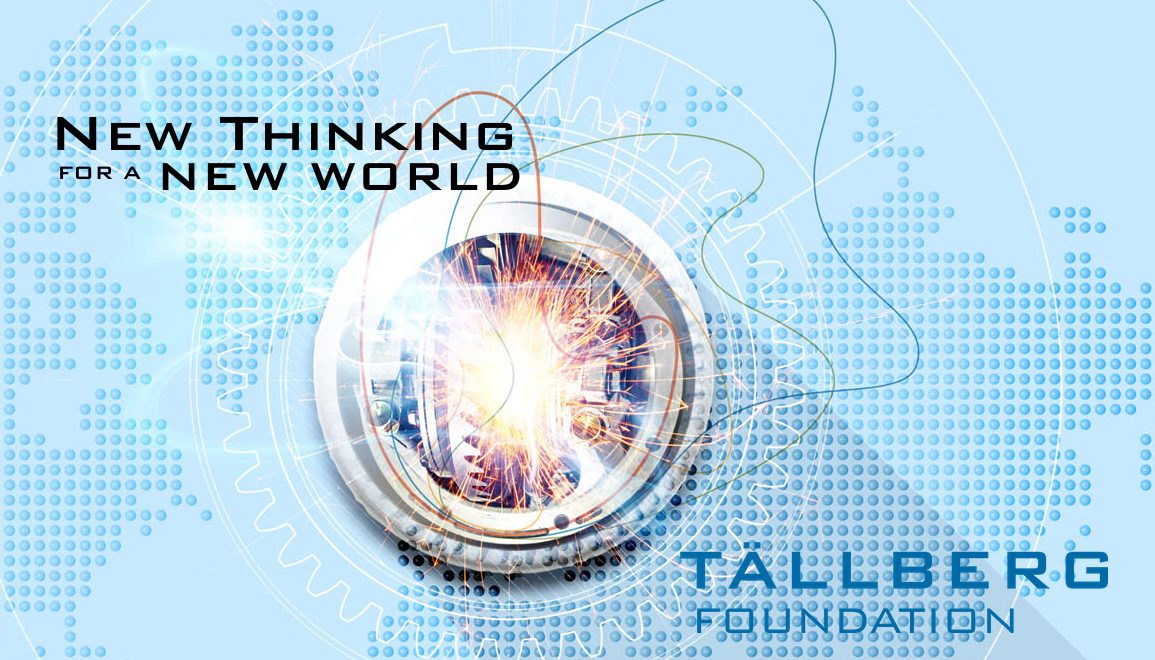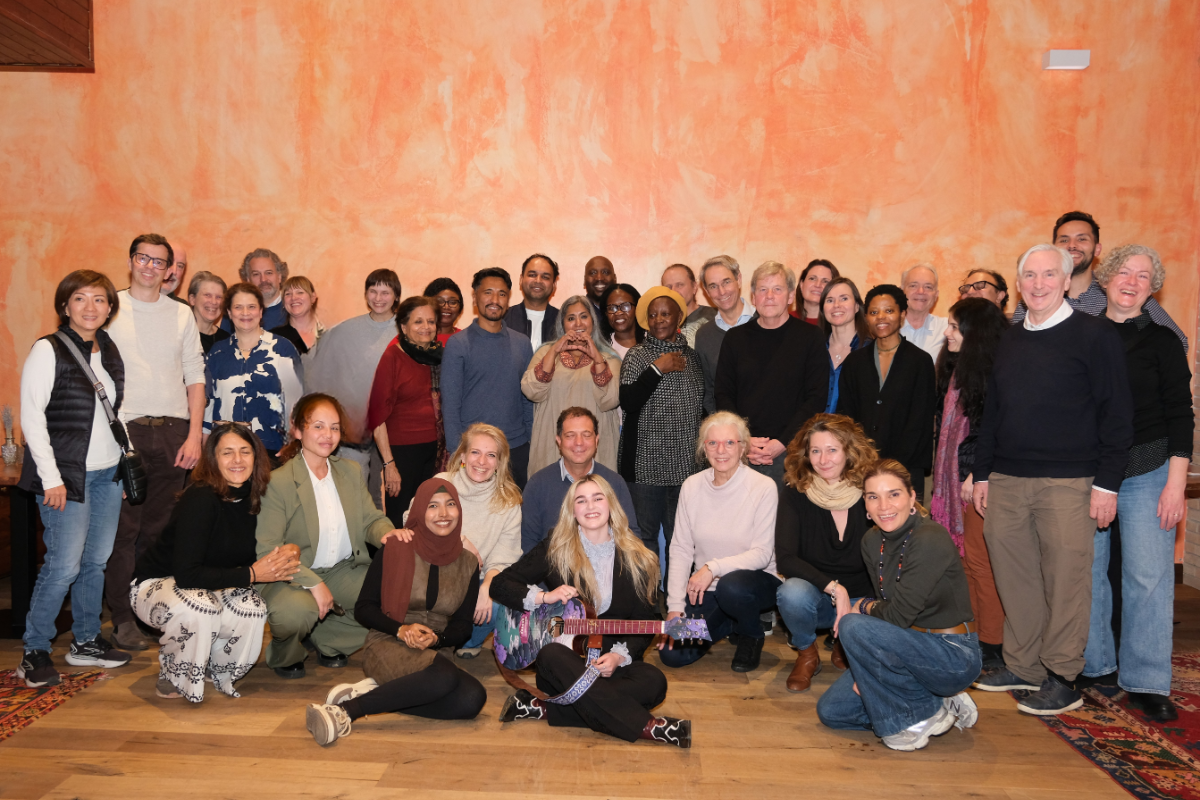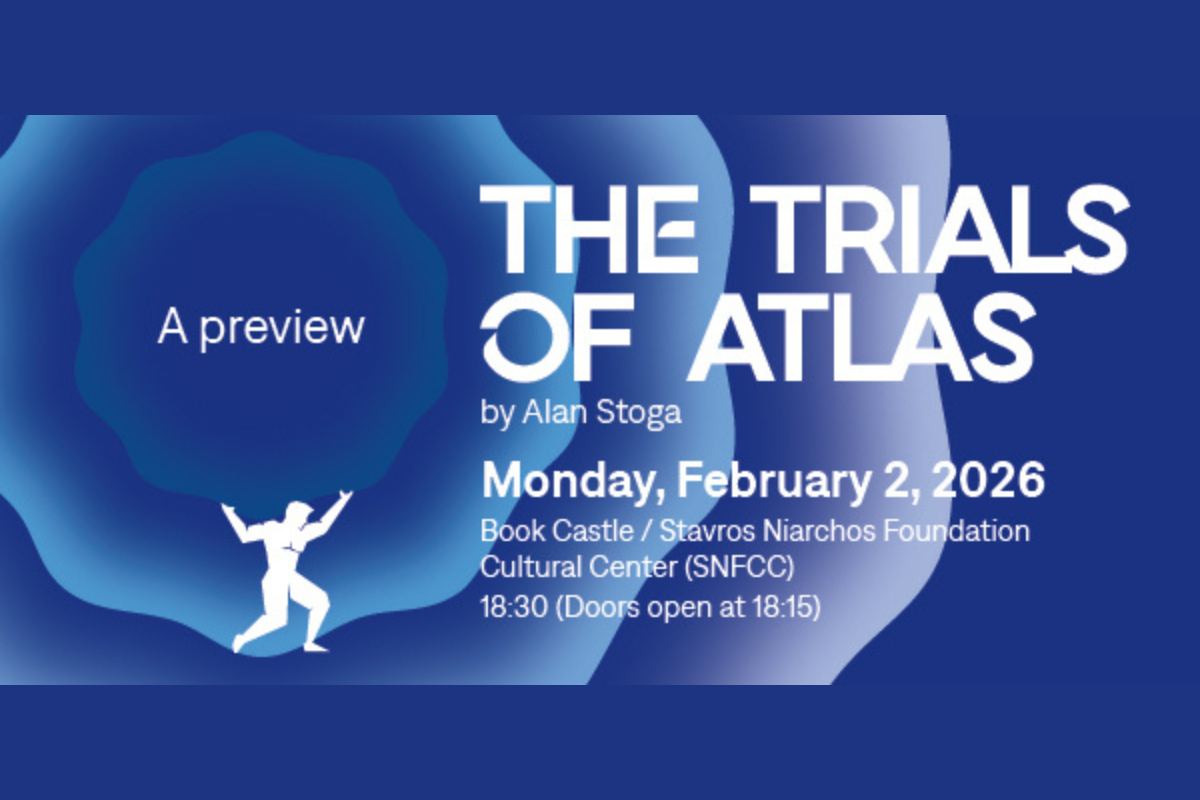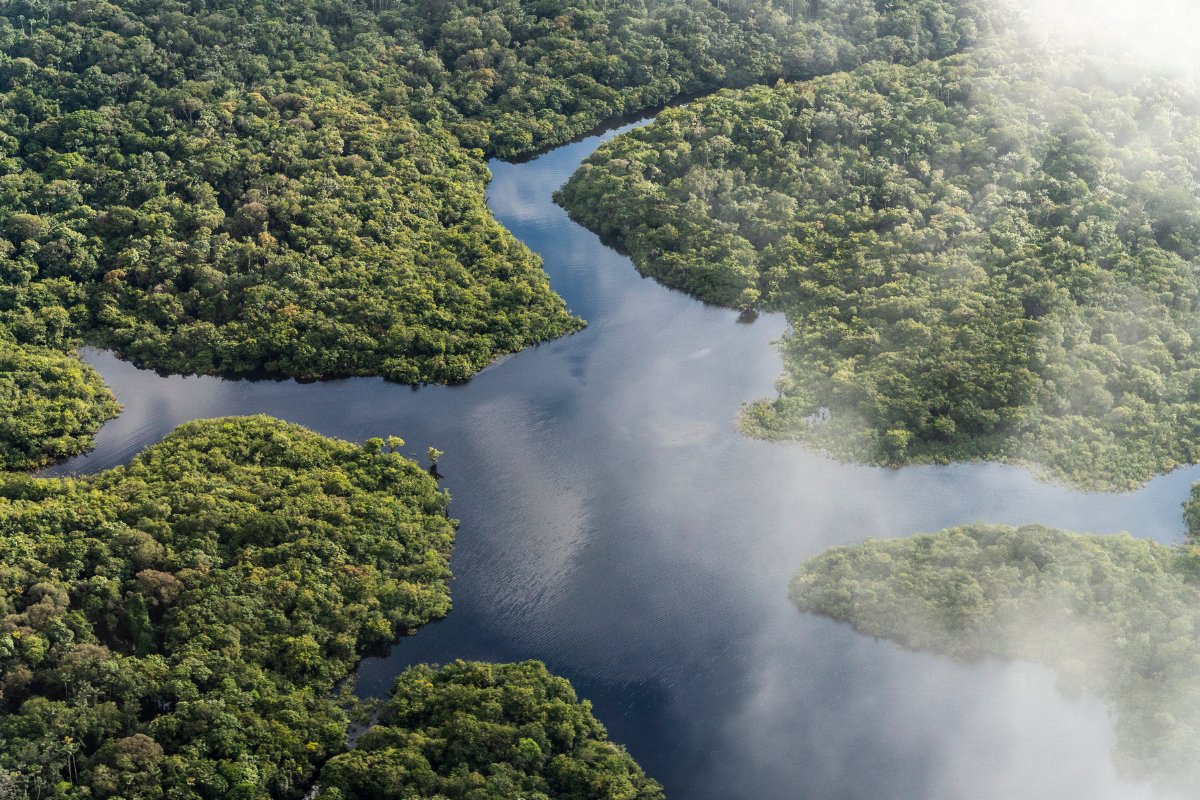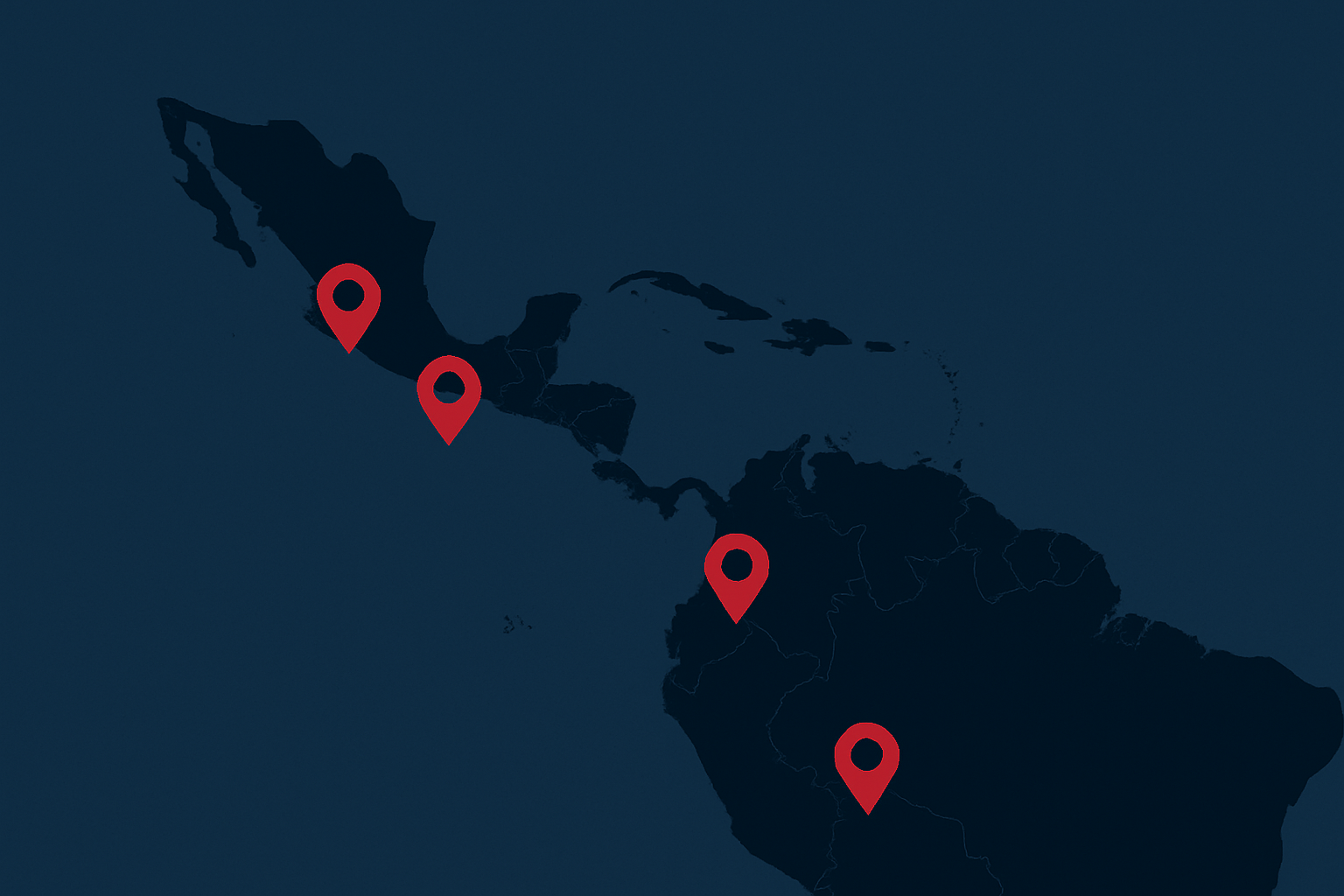Tällberg in Kenya – New Thinking for a New World
The Tällberg Foundation, launched in 1981, exists to provoke thinking—and action based on thinking— about the issues that are challenging the evolution of liberal democracies. Those challenges are profound: the world that we have known since the mid 20th century, which produced unprecedented peace as well as constant human advancement, is changing at a pace and in directions that already exceed society’s ability to cope, never mind manage.
But the forces for “good” still exist even if they need to be renewed, made more muscular and more effective. The Foundation aspires to be part of that process. Tällberg’s core operating method is to convene people with diverse and different minds, ideas, cultures, and perspectives in a search for new, actionable solutions. In that sense, the Foundation is more a platform than an organization, with a constantly evolving network. Our deep commitment to globalism makes us fundamentally
nomadic: geographic borders need to be crossed with as much enthusiasm as intellectual boundaries if we have any hope of effecting the kinds of positive change the world now needs.
We also deeply believe in partnership since complexity demands collaboration. The Tällberg Foundation is honored to be working closely in this endeavor with Kenya’s Senate, under the patronage of Speaker Kenneth Lusaka, and Strathmore University’s Business School, under Dean George Njenga. They and their teams share Tällberg’s commitment to be engaged, global citizens.
In that spirit, this workshop has been imagined and designed to encourage participants to engage in robust dialogue not only about what’s wrong with the world, but about what can be done—what we can do—to make it better. An extraordinary group of people from almost 20 countries and an amazing range of backgrounds and occupations have come together to talk and think—and talk some more. The agenda outlined in these pages should be considered more as a directional guide to those conversations than a rigid program; defining better questions could be more valuable than forcing tentative answers.
Of course, in one sense we are foreordained to fail: the world will be at least as fraught when we end as when we start. But, if we are imaginative enough to make new connections, to imagine new pathways, or to look at the familiar from different perspectives, then these conversations will have lasting value. And even better if they inspire new action.
The great anthropologist Margaret Mead said it best, “Never doubt that a small group of thoughtful committed citizens can change the world. Indeed, it is the only thing that ever has.”
Program highlights
DAY 1
Leadership and impossible choices.
A staged reading in which the audience—as the jury—decides the innocence or guilt of the accused.
How worried should we be?
The 20th century began with a profound economic, political, social and humanitarian crisis that eventually birthed a long period of near universal peace, prosperity and justice. The early 21st century begins to feel like an era where many of those gains could come undone. Rising nationalism, accelerating climate change, disruptive technological change, widespread societal tensions rooted in lack of trust, slowing economic growth and development: are these symptoms, causes, consequences? Are our institutions adequate? Are our leaders–wherever we find them–capable?
Crossing boundaries and breaking borders
Borders might be the death of us. Borders to thinking, to feeling, to solving problems, to imagining new futures. Ignoring borders and boundaries demands great leadership, but our future is bleak if we leave the fences standing.
The future of work: is technology the solution or the problem?
Artificial intelligence, robotics nanotechnology, new materials and other innovations are rapidly changing how goods and services are produced, distributed and consumed. The good news: fabulous increases in productivity (even if we don’t know how to measure it) are occurring; the bad news: whole categories of jobs are threatened or are already disappearing. Is this just a transition problem as new jobs are created or something more existential that will force societies, at different paces and at different times, to rethink the nature of work. Do we live to work or do we work to live–and can we harness technology to serve us rather than itself?
Parallel afternoon sessions
Breakout sessions: 5 separate discussions
Program for students: A large session for students—from Strathmore and elsewhere
Program for students: Can Leaders be ethical in a complicated world? We all want to live in an ethical world, one in which leaders share a moral compass and work towards a common vision for humanity’s betterment. But such a world never was and may never be. In the real world, what is possible? How can leaders operate successfully, but also ethically? The large session for students—from Strathmore and elsewhere—will include audience questions and answers
Session 1: Confronting our biases: why don’t we care when refugees suffer and die?
We still don’t fully know how the human brain works, but we have plenty of insight into how and how much of the hate, conflict, racism, and strife in the world starts in the brain. Neuroscience can give us at least partial answers to questions like:
- What does discrimination feel like?
- What does exclusion feel like?
- What are some of the effects of prolonged discrimination on the human brain and body?
- Is racism a function of conditions or is it a trait-level issue?
Once we answer these questions, can we change behaviors to make us more empathetic? Practical interventions? What has been learned in Kenya at Dadaab and Kakuma?
Session 2: Imagining the elements of a new economics (aka, how to save capitalism from itself?) Slowing global growth, rising income and wealth inequality, ingrained deflation, stagnating international trade, unwinding of at least some global supply chains and excessive debt burdens are symptoms of a disease that could be fatal if there is another “Great Recession” in coming years. Is the problem the underlying neo-liberal model or is it how the model has been implemented? Is monetary policy exhausted? Are the policy failings political or more fundamental? What is the role of the private sector? Can micro enterprise and small business drive significant economic growth?
Session 3: Should we believe the demographers and, if so, what are the consequences for Africa and for Europe? Today 1.25 billion people live in Africa; demographers forecast that this will double by 2050. By 2050 there are likely to be almost 1 billion Africans under the age of 24. This population explosion is either virtue or vice: it could be the catalyst for substantial new economic growth or precipitate a death scramble for scarce resources. In either event, the dramatic demographic shift will certainly lead to young Africans seeking a better life wherever they can find it. Is there potential for accelerated migration within Africa and out of Africa?
What implications–including the potential brain drain–and what role for politicians, diplomats, business leaders and others in working for positive outcomes?
Session 4: Breaking the vicious circle of climate and migration
During the first half of 2019, severe weather has displaced at least 7 million people, a number forecast to triple by the end of the year. The World Bank has forecast that there will be at least 140 million climate refugees by 2050, probably underestimating the evident accelerating pace of climate change. Can we imagine solutions that anticipate these flows, reducing the human as well as the political costs of simply waiting for the problems to become visible? What legal, economic, financial, etc. tools are needed?
Session 5: Tweaking the model at the intersection of work, climate and justice: Chronic Kidney Disease case study and implications for “development”
Thousands of Central American workers working in sugar mills have died of kidney disease that is caused by a witches’ brew of heat, humidity, and working conditions–an occupational disease that could be a poster child for a warming world. Where traditional development actors failed, a new combination of science, activists and foundations are evolving a strategy that not only saves lives, but improves outcomes for communities and companies. What are the implications of this case study? What can Kenya learn in the context of cancer?
DAY 2
Poetry performance by Sitawa Namwalie
Understanding the past to change the future We need to embrace our past—good, bad, and ugly—to have any chance of shaping our futures. That process requires intellectual, physical and emotional dimensions, and is the process whereby artists become leaders, perhaps indispensable leaders.
Leadership and values
All leaders are tested, sooner or later; their moral compass is critical to making decisions, especially when confronted with seeming impossible choices. Without well defined, firmly held values, leaders will inevitably fail. But from where do those values come? Whose values? How are they sustained?
Does democracy have a future?
People in many countries are evidently unhappy with their elected leaders, perhaps even with democracy itself. One result is that outsiders and autocrats are on the rise. In some places, voting turnout is so low as to raise questions about legitimacy; in others, voters seem to reject the status quo whenever given the chance–especially if their leaders tell them not to do so. What’s the problem and, more importantly, what are the solutions?
Why try to solve the unsolvable?
We are confronted by problems whose dimensions seem to be growing exponentially. Almost everything seems bigger than our ability to cope, never mind solve. Should we stop pretending and give up?
Parallel afternoon sessions
Breakout sessions: 5 separate discussions
Session 6: Searching for new governance models for the 21st century: challenges and realities
Citizens in many countries are feeling increasingly alienated from their governments; they seem to think that the social contract by which votes and support are exchanged for prosperity and peace is broken. Where does the fault lie, and how to repair it before the age of democracy turns into the age of autocracy? Can technology play a role? Are referenda (e.g., Brexit) a solution? How to protect minority rights? What new ideas emerge from Strathmore work on participatory engagement models?
Session 7: Doing good in a difficult operating environment: challenges, opportunities, compromises, and outcomes
Jan Eliasson likes to talk about making the forces of good “more muscular,” and in an increasingly fraught world that is critical. However, a focus on outcomes risks compromises that could be morally complicated. How to achieve an acceptable balance? A practical discussion based on two case studies, one from India and one from the Central African Republic.
Session 8: Reimagining global and regional institutions for a world of rising nationalism
The United Nations and the Bretton Woods economic institutions were built after catastrophic world wars and a depression. They prospered during a long period in which economic globalization, technological progress, and enlightened diplomacy reinforced the drive towards solutions beyond the nation state. Now forces–perhaps including technology–seem to be conspiring in the opposite direction. There are important exceptions, like the new African Continental Free Trade Area, but they are rare. What institutional reforms are needed to meet the evolving reality of the 21st century?
Session 9: Can technologists and other innovators create new solutions fast enough to save us?
Despite mountains of reports, endless conferences and too many unmet promises there is mounting evidence that the earth’s climate has passed a tipping point. We have failed to take meaningful collective action, which could mean that all that’s left to avoid catastrophic consequences is to hope for technological miracles. What are the odds and what might those innovations look like?
Non-linear thinking for a non-linear world
We live in a world where yesterday is no longer the best predictor of tomorrow. The de facto and de jure “rules of the game” which govern countries, governments, organizations and individuals are changing in predictably unpredictable ways. How to think differently? How do we embrace uncertainty?
Imagining the future: what do we need to do next?
